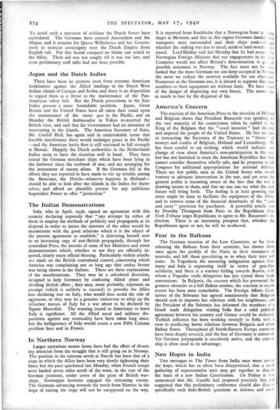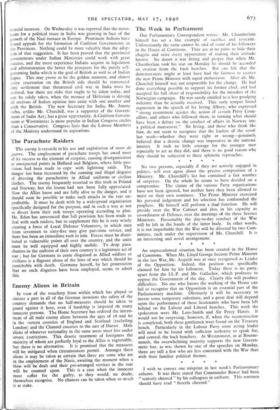New Hopes in India
Two messages to The Times from India once more rev %e the hope, which has so often been disappointed, that a sn-all gathering of representative men may get together to discuss the basis of a new Indian Constitution. On Friday it v is announced that Mr. Gandhi had proposed -precisely this a id suggested that this preliminary conference should also discs‘ specifically such Indo-British questions as defence and cc..1- mercial interests. On Wednesday it was reported that the move- ment for a political truce in India was growing in face of the growth of the Nazi menace in Europe. Prominent Indians have issued appeals for the formation of Coalition Governments in the Provinces. Nothing could be more valuable than the adop- tion of that suggestion. It has been proved that the provincial governments under Indian Ministries could w ork with great success, and the more experience Indians acquire in legislation and administration the better the prospects for the purely self- governing India which is the goal of British as well as of Indian hopes. This may prove to be the golden moment, and almost every reservation on the British side should be renounced. Any settlement that threatened civil war in India must be resisted, but there are risks that ought to be taken today, and can be safely taken, when the menace of Hitlerism is driving all sections of Indian opinion into unity with one another and with the British. The new Secretary for India, Mr. Amery (who, unlike Mr. Churchill, was a supporter of the Govern- ment of India Act), has a great opportunity. A Coalition Govern- ment at Westminster is more popular in Indian Congress circles than a Conservative. Congress feels that the Labour Members of the Ministry understand its aspirations.



































 Previous page
Previous page